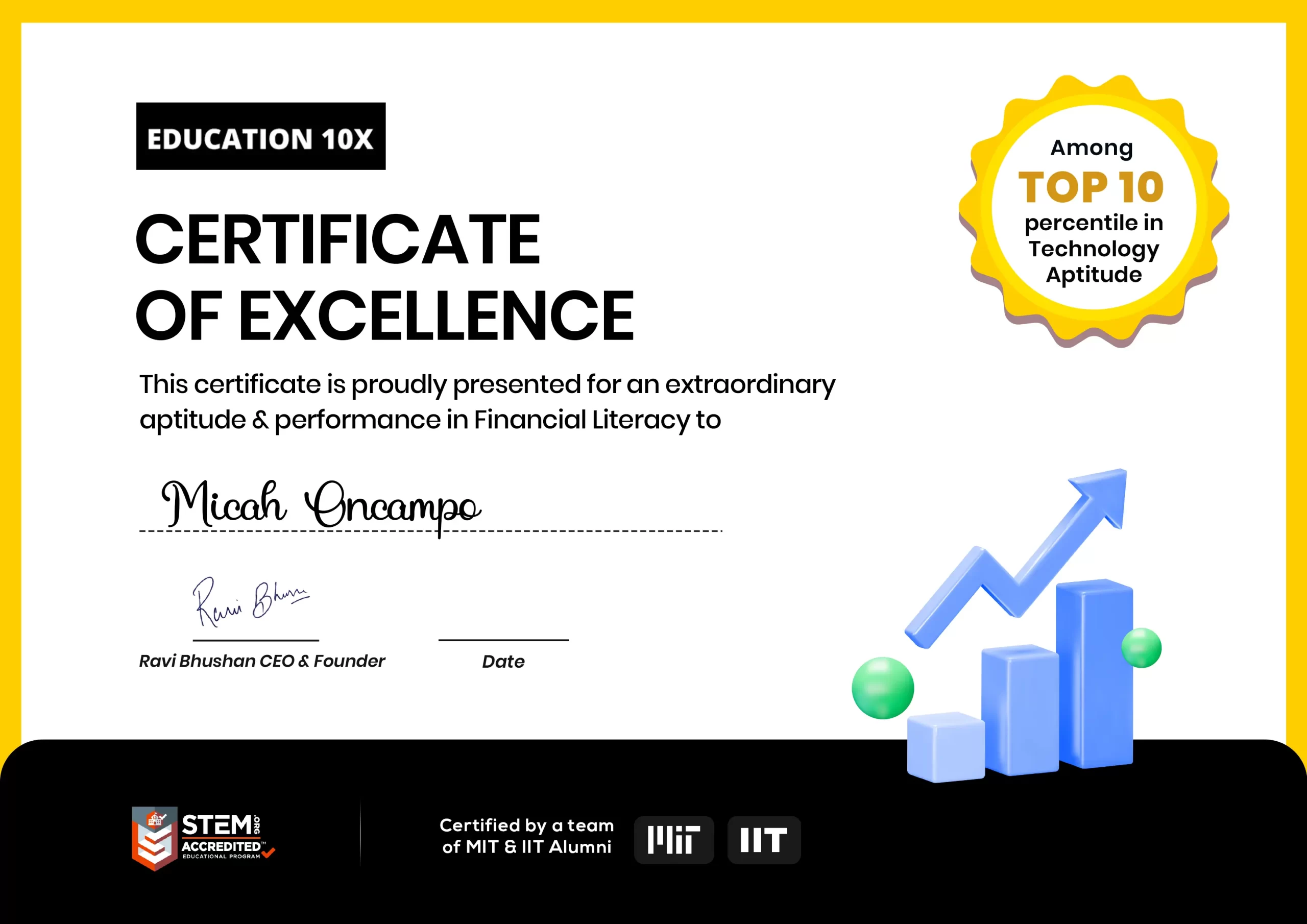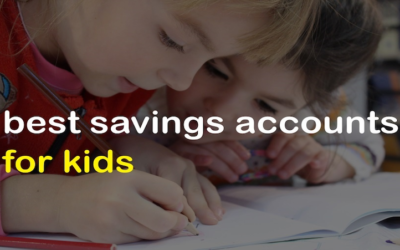In a world where financial decisions shape the course of our lives, understanding the language of money is paramount. Money literacy, often used interchangeably with financial literacy, serves as the cornerstone for achieving both financial freedom and security. It acts as a master key, allowing us to unlock the mysteries of financial concepts, strategies, and practices that steer the ship of our financial well-being.
In this article, we embark on a voyage dedicated to unraveling these intricacies, arming you with the essential knowledge and skills required to navigate the world of personal finance confidently. By demystifying these concepts, we empower you to make well-informed financial decisions, ensuring your financial future is one of strength and prosperity.
Table of contents
1. Defining Money Literacy

Money literacy, frequently known as financial literacy, represents the aptitude to comprehensively grasp and proficiently oversee one’s financial matters. This encompassing skillset spans a broad spectrum, encompassing fundamental financial principles, intricate investment tactics, and everything in between. It is the linchpin upon which financial well-being hinges, equipping individuals with the tools to make sound financial choices.
The Importance of Money Literacy
Money literacy stands as an indispensable life skill, bestowing individuals with the capacity to deliberate and execute informed financial choices. It serves as the linchpin for attaining financial equilibrium, chasing after your aspirations, and fortifying your future. In essence, it’s the pivotal tool in your arsenal that paves the way to financial stability and the realization of your long-term objectives.
2. Fundamentals of Money Literacy
Basic Financial Concepts
1. Income vs. Expenses: Comprehending your cash flow is of utmost importance. Income embodies what you earn, while expenses encapsulate what you spend. Striking and maintaining this equilibrium forms the bedrock of financial stability and well-being.
2. Savings vs. Investments: It’s imperative to grasp the differentiation between saving money, primarily designated for short-term needs, and investing, which is geared toward fostering long-term growth. These two facets constitute indispensable pillars of sound financial planning. Savings serve as a financial safety net, readily accessible for immediate expenses and emergencies. Conversely, investments are a means of growing your wealth over an extended period, often involving assets like stocks, bonds, and real estate.
Teaching the fundamentals of money literacy through activities like budgeting and saving is essential for effective money management for kids.
Financial Goal Setting
1. Short-term vs. Long-term Goals: Establishing well-defined financial goals serves as a catalyst for maintaining motivation and direction in your financial journey. Short-term goals, such as acquiring a car, typically have a relatively immediate timeframe and are oriented toward fulfilling specific, near-future needs or desires. Long-term goals, conversely, such as retirement planning, encompass extended time horizons, often spanning decades, and are centered around securing your financial future during your post-working years.
2. SMART Goals for Financial Success: The SMART framework acronymically breaks down into Specific, Measurable, Achievable, Relevant, and Time-bound. Implementing this structured approach guarantees that your financial goals are precisely defined and within reach. Specificity means your goals are clear and unambiguous. Measurability ensures you can track your progress. Achievability ensures your goals are realistic. Relevance ensures your goals align with your broader financial objectives.
Financial education for kids should include lessons on financial goal setting, helping them understand the importance of setting and working towards their financial objectives from an early age.
3. Money Management Strategies
Budgeting
Mastering the art of crafting a budget, which itemizes your income, expenses, and savings targets, is a fundamental skill for efficient financial management. This invaluable tool serves as a compass to navigate your financial journey. Equally crucial is the ongoing monitoring of your spending habits, a vital aspect of financial well-being. By scrutinizing your expenditures, you can pinpoint areas where potential cost reductions are feasible, thus freeing up resources that can be channeled toward fulfilling your financial objectives. This proactive approach empowers you to stay on track and make meaningful progress toward your financial goals.
Budgeting for kids is a valuable skill that lays the foundation for responsible financial habits and teaches them the importance of managing their money wisely from an early age.
Debt Management
Distinguishing between good debt, which often involves investments like a mortgage, and bad debt, typified by high-interest credit cards, is a crucial financial discernment. It’s essential to prioritize the repayment of high-interest debts, as they can significantly impede your financial progress. There are systematic strategies like the debt snowball or debt avalanche methods that you can explore to methodically eliminate your debt. These methods empower you to regain control over your finances by strategically paying off debts, allowing you to work towards a debt-free future and stronger financial footing.
Introducing the concept of learning money for kids involves imparting essential money management strategies that will serve them well throughout their lives.
4. Building Wealth

Saving Money
An emergency fund functions as a critical financial safety cushion, providing protection against unforeseen expenses. Understanding how to establish and sustain this fund is essential for financial security. Moreover, you can explore diverse saving tactics, like automating your savings or establishing dedicated accounts for specific objectives. By employing these strategies, you can ensure a more robust financial foundation, ready to weather unexpected financial challenges and keep your long-term goals on track.
Opening a bank account for kids is a practical step in teaching them the importance of saving money and developing responsible financial habits. Selecting the best savings account for kids often involves considering factors like interest rates, fees, accessibility, and educational features to encourage their financial growth.
Investing Wisely
Gaining insights into various investment options such as stocks, bonds, and real estate is vital. It’s essential to diversify your investments as a risk management strategy. Evaluating your risk tolerance is equally crucial, allowing you to tailor an investment portfolio that aligns with both your financial objectives and your comfort level regarding risk. By doing so, you can construct a well-rounded investment strategy that mitigates risk and positions you for long-term financial success.
5. Financial Planning
Retirement Planning
1. Planning for Retirement: Initiating retirement planning at an early stage is a wise financial move. Early planning affords you more time to build a substantial retirement nest egg. It’s crucial to familiarise yourself with retirement accounts such as 401(k)s and IRAs, as they offer tax advantages and can significantly bolster your retirement savings. These accounts serve as indispensable tools on your path to financial security during your golden years.
2. Retirement Accounts and Options: Examining the advantages and characteristics of different retirement accounts and investment avenues is a crucial step in effective retirement planning. Retirement accounts like 401(k)s and IRAs offer tax advantages and employer contributions, while Roth IRAs provide tax-free withdrawals in retirement. Diversifying your portfolio with investment options such as stocks, bonds, real estate, and annuities allows you to tailor your retirement strategy to meet your specific financial goals and risk tolerance, ensuring a more secure and prosperous retirement.
Tax Planning
1. Understanding Taxes: Understanding the fundamental concepts of income tax, deductions, and tax credits is pivotal to managing your financial affairs effectively. Tax planning plays a pivotal role in shaping your overall financial landscape. By grasping these basics, you can optimize your tax situation, potentially reducing your tax liability and freeing up resources for other financial goals.
2. Tax-Efficient Strategies: Exploring tax-efficient investment strategies is a key component of effective financial planning. These strategies are designed to help you minimize your tax liability, ensuring that you retain more of your investment gains. By utilizing tax-efficient investment approaches, you can optimize your after-tax returns, preserve your wealth, and enhance your overall financial success.
6. Financial Education
In the vast landscape of financial education, one must navigate through a plethora of resources, including personal finance books and online courses, all of which contribute to enriching your money literacy. Equally imperative is your ability to discern when and how to engage financial advisors, harnessing their expertise for well-informed decision-making on complex financial matters. It’s incumbent upon you to critically examine and challenge prevailing money myths that could potentially hinder your financial journey. Moreover, understanding the inherent dangers of harboring unrealistic financial expectations is paramount, as it serves to demystify the allure of get-rich-quick schemes.
By adopting a discerning and critical approach, you embark on a journey of strengthening your financial knowledge and aptitude. This, in turn, empowers you to make sound and sustainable financial choices, ultimately securing a more promising and stable financial future for yourself and your loved ones.
Introducing a credit card for kids can be a valuable tool for financial education, helping them learn responsible spending and budgeting under parental guidance.
7. Financial Challenges and How to Overcome Them

Coping with Financial Stress
1. Managing Anxiety About Money: Coping with stress and anxiety linked to financial concerns necessitates the adoption of effective techniques. Start by creating a comprehensive budget to gain better control over your finances and reduce uncertainty. Seeking emotional support from friends, family, or professionals can provide a valuable outlet for sharing your concerns and receiving guidance.
2. Seeking Professional Help: Knowing when and how to seek professional help for financial difficulties is crucial. Seek professional assistance when you face overwhelming debt, legal issues like bankruptcy or foreclosure, significant income loss, or complex financial situations. To find the right help, research reputable financial professionals, schedule consultations to discuss your situation, verify their credentials, understand their fee structure, and clarify the services they provide.
Dealing with Unexpected Expenses
Recognizing the significance of both emergency funds and insurance in managing unforeseen financial setbacks is paramount. These two elements form the foundation of a strong financial safety net, safeguarding your economic stability during challenging times. To establish a resilient financial safety net, you must take proactive steps. Start by building an emergency fund, and setting aside a dedicated savings cushion for unexpected expenses. Additionally, acquiring appropriate insurance coverage, such as health, auto, or home insurance, further fortifies your financial defenses, ensuring that you are well-prepared to weather unexpected financial storms.
8. The Future of Money Literacy
Technological Advancements in Finance
Exploring the impact of fintech innovations reveals a transformative shift in the realm of money management. Fintech, a fusion of finance and technology, is revolutionizing how we handle finances, from mobile banking apps to digital payment solutions and robo-advisors. It streamlines processes, enhances accessibility, and offers new investment avenues, empowering individuals to manage their money more efficiently in today’s digital age.
Evolving Economic Trends
Being prepared for economic changes and uncertainties is essential for financial resilience. Strategies like diversifying your investments, maintaining an emergency fund, and staying informed about economic developments can help you adapt to shifting economic conditions. By proactively planning for economic shifts, you can mitigate potential risks and position yourself for financial success, even in volatile times.
Conclusion
In conclusion, money literacy is an ongoing journey that can empower you to take control of your finances, achieve your goals, and secure your financial future. By understanding the fundamentals of money management, staying informed about financial trends, and cultivating good financial habits, you can embark on the road to financial independence and build a brighter financial future. Start your money literacy journey today and reap the benefits for a lifetime.
To get your hands on more such educational and free resources on coding, robotics, game development, etc., do check out the BrightChamps Blog Page now!
Frequently Asked Questions (FAQs)
A1. Money literacy is the ability to understand and manage your finances effectively, encompassing knowledge of financial concepts and strategies.
A2. To start budgeting effectively, begin by tracking your income and expenses, setting clear financial goals, and regularly reviewing and adjusting your budget.
A3. Best practices for managing debt include prioritizing high-interest debt repayment, creating a debt payoff plan, and seeking professional guidance if needed.
A4. Deciding where to invest your money depends on your financial goals and risk tolerance; it’s advisable to diversify your investments across different asset classes.
A5. To teach your children about money, involve them in age-appropriate financial discussions, encourage savings habits, and provide real-life money lessons, like budgeting and saving for goals.


 We are an army of educators and passionate learners from BrightChamps family, committed to providing free learning resources to kids, parents & students.
We are an army of educators and passionate learners from BrightChamps family, committed to providing free learning resources to kids, parents & students.








